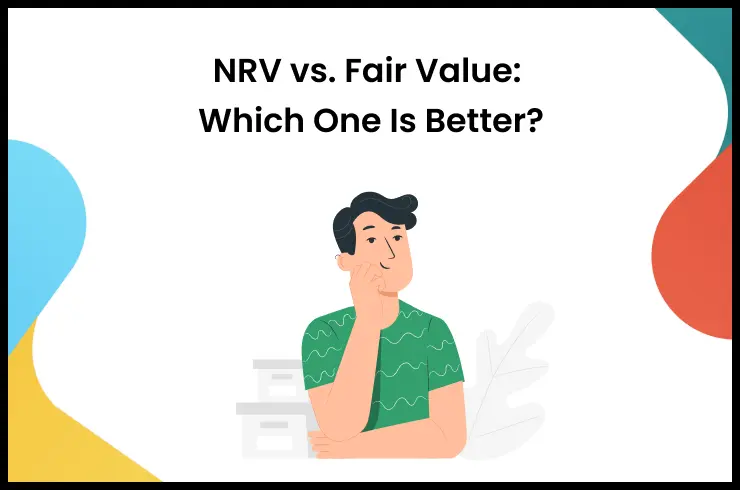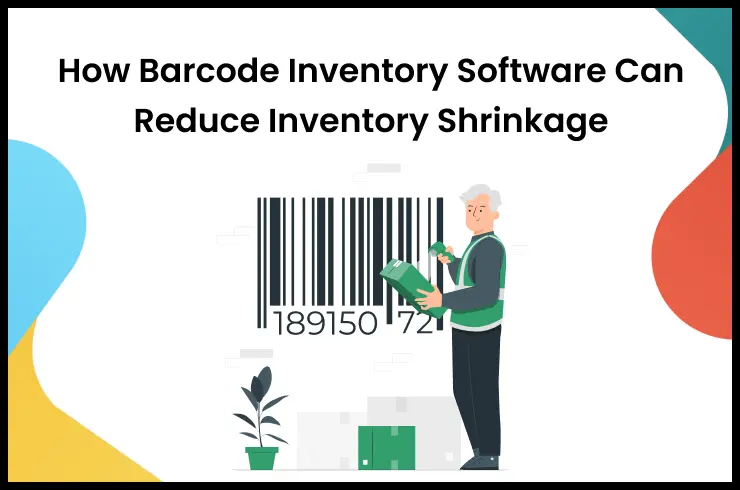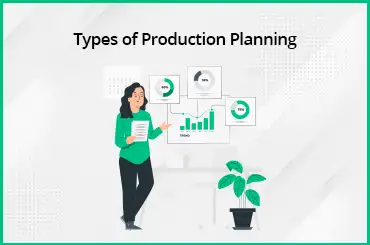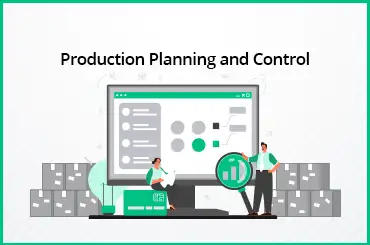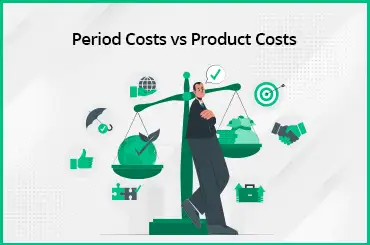An MRP system for manufacturing (Material Requirements Planning) manages production materials, schedules, and inventory of a manufacturing business. With this, manufacturing businesses can make sure that production happens on time at reduced cost. They analyze demand, forecast requirements, and simplify processes.
This helps businesses to meet customer needs effectively. In this blog post, we will learn more about the MRP system and see how it can benefit your manufacturing business.
What is the MRP System?
The MRP system for manufacturing helps businesses manage their production effectively. It simplifies the process of starting the production as per customer demand. The key components of an MRP system for manufacturing are:
1. Organizes Bill of Materials: It's a list that shows what materials and parts are needed to make a product.
2. Inventory Management Use: This keeps track of how much materials you have, like raw materials and finished products.
3. Master Production Schedule (MPS): It's a plan that reflects when and how much of each product to make.
4. Material Requirements Planning: This figures out how much material you need and when based on the MPS (Master Production Schedule) and BOM (Bill of Materials).
5. Capacity Planning: It checks if you have enough resources like machines and workers to manufacture everything.
6. Better Decision Making: With access to comprehensive data and insights, businesses can make informed decisions about inventory management, production scheduling, and resource allocation. This enables proactive problem-solving and strategic planning, leading to better business outcomes.
7. Scalability and Flexibility: MRP systems are scalable and adaptable to the changing needs of businesses, allowing them to accommodate growth and diversification. Whether expanding operations, introducing new products, or adjusting production volumes, MRP systems provide the flexibility to optimize workflows and resources accordingly.
Why is The MRP System Important for Manufacturers?
Let's try to understand the importance of mrp system:
1. Simplifying Production: The MRP system for manufacturing helps manufacturers run their business operations smoothly. It helps with the planning of the production process. This makes sure everything is done accordingly while satisfying customers’ demands.
2. Cost Cutting: Manufacturing products cost money. The MRP system for manufacturing, helps manufacturers find ways to do it at a lower cost. This lets manufacturers find the best way to use resources and plan production. It ultimately saves money and increases profit.
3. Staying Competitive: In the manufacturing business, it's important to stay ahead of the competition. The MRP system helps manufacturers stay ahead by aligning the production process with the demand. That way, businesses can have an advantage of being competitive in the market and maybe even doing better.
4. Improving Quality: Customers want products that work well and last long. The MRP system for manufacturing makes sure manufacturers have the right materials to make high-quality products. That leads to satisfied vendors and fewer returns or complaints.
5. Reducing Wastage: Waste is bad for businesses and the environment. The MRP system for manufacturing helps by making sure manufacturers only make as much material as they need. That means less waste going to landfills and more resources saved for the future.
6. Scaling Operations: Sometimes, manufacturers need to make more products or fewer products depending on demand. The MRP system helps them do that by adjusting production plans accordingly. This helps them level up production when needed. Alternatively, they can scale back during slower times without any problems.
7. Ensuring Compliance: There are rules and regulations that manufacturers need to follow to stay in business. The MRP system for manufacturing helps by keeping track of these rules and making sure manufacturers follow them. This helps them avoid fines or penalties.
Key Benefits of MRP System
The MRP system for manufacturing plays an important role in simplifying production operations. It helps reduce costs and improve quality competitiveness for manufacturers. Here are some of the most important benefits of an MRP system:
1. Material Management: The MRP software calculates material needs based on production schedules and inventory levels. This prevents shortages or excess stock and makes sure smooth production flow.
2. Satisfying Customers: The material requirements planning software helps manufacturers deliver orders on time. It does so by planning schedules and managing resources well. This promotes customer satisfaction and loyalty.
3. Optimizing Resources: The MRP software easily assigns manpower, machinery, and workspace. Doing the work using MRP software, reduced the waste and also boosted productivity.
4. Cost Reduction: The MRP software cuts costs by reducing excess inventory, simplifying production, and needing less storage space.
5. Decision Making: The MRP system for manufacturing helps manufacturers with decision-making and adjust quickly to market changes. It does so by giving them instant information about production and materials.
6. Improved Forecasting: MRP systems provide valuable insights into future material and production needs based on historical data and current demand trends. This allows manufacturers to make more accurate forecasts, reducing the risk of over or low-production.
7. Enhanced Collaboration: With MRP software, different departments within a manufacturing organization can collaborate more effectively. By providing a centralized platform for communication and data sharing, MRP systems help coordination between purchase, production, and logistics teams, leading to smoother operations and better results.
Things to Consider When finding the right MRP system for manufacturing business
When you're picking out the perfect MRP software for a manufacturing business, there are some key things you need to think about:
1. Scalability: Small to medium-scale manufacturing businesses are always growing. Using MRP software for manufacturers can keep up with that growth. It makes sure it can handle more data and users as your business gets bigger.
2. Integration: Your MRP system for manufacturing will work smoothly with the existing software and systems. That way, you can easily share information between different parts of your business without any problems.
3. Customization: Every manufacturing business is different. You need an MRP system for manufacturing that you can customize to fit your specific needs. In simpler words, you can tailor it according to your business requirements. This reduces the need to change the processor entirely.
4. Interface: While implementing an MRP, you will have to teach your team to be able to use the MRP system. Look for one with a simple, easy-to-use interface that doesn't need a lot of training to get the hang of. That way, your team can start using it right away and be more productive.
5. Support: Getting a new MRP system up and running can be tricky. To help with that, you should look for a provider that offers good support and training. That means they'll be there to help you out if you run into any problems, and they'll make sure your team knows how to use the system effectively.
Manufacturing Success with TranZact
Manufacturers often struggle with supply chain management, leading to delays and higher costs. Poor production planning results in the wastage of business resources, the inability to maintain customer demand, and more. Limited real-time insights also delay decision-making. To overcome these issues TranZact can be your helping hand.
TranZact MRP Solution simplifies supply chain management, improves production planning, and provides real-time insights. With TranZact, manufacturers can efficiently manage their operations, meet customer demands, and adapt to market changes, securing success in today's competitive business world.
FAQs
1. What is the MRP system in manufacturing?
The MRP system for manufacturing is software that is used to plan and manage the materials needed for production. It helps manufacturers check what materials are required, when they need them, and how much they need to meet production demands.
2. Why is MRP important in modern manufacturing?
MRP system for manufacturing is important in modern manufacturing because it helps businesses easily manage their production processes. It makes sure that the right materials are available at the right time. It improves resource usage, reduces costs, and enables manufacturers to adapt quickly to changing market conditions.
3. What are the 3 benefits of the MRP System?
The three benefits of the MRP system are, efficient resource usage, meeting customer demands, and cost reduction.
4. What are the 4 major MRP inputs?
The four major inputs of MRP are, Bill of Materials (BOM), Inventory levels, Master Production Schedule (MPS), and Lead times.
5. Is MRP an ERP System?
MRP system for manufacturing is a component of ERP (Enterprise Resource Planning) systems. MRP focuses specifically on planning and managing materials for production. ERP systems include many features that handle the different aspects of operations of manufacturing business processes.
6. What is the scope of MRP in manufacturing?
The scope of MRP in manufacturing includes planning and managing material requirements, scheduling production activities, improving resource usage, and timely order fulfilment.
7. What are the 3 major functions of MRP?
The three major functions of MRP are material planning, production scheduling, and inventory management.






